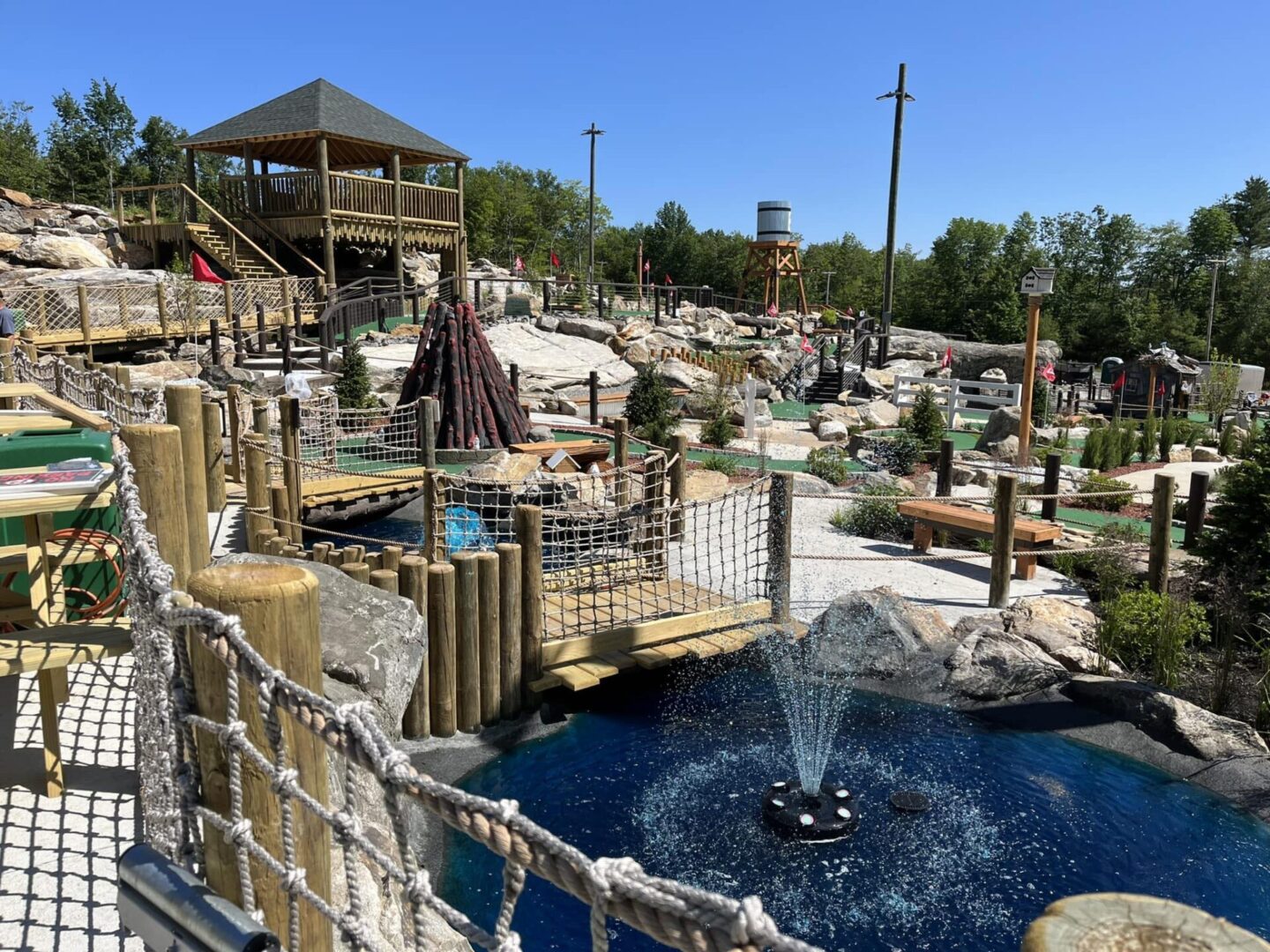Key Considerations for Choosing a Mini Golf Course Location
Property Size and Features
Finding the right property size is crucial. Bob Horwath recommends aiming for at least one or two acres at Horwath Miniature Golf Courses. This allows for the creation of a top-quality mini-golf experience with exciting features like dramatic elevations. It also provides space for additional amenities such as parking, picnic areas, and concession stands, which are essential for future expansion and customer comfort.
Topography and Budget Considerations
Consider the physical terrain of the property. Flat land may require additional investment to create elevation changes, which are vital for a visually appealing mini golf course. Factor these costs into budget planning to ensure the project remains feasible.
Demographics and Location
Understanding the demographics of the chosen area is crucial. Whether in a big city, small town, or rural area, evaluate the local population and tourist traffic. A smaller town may offer lower costs for zoning and permits, but it's essential to assess potential customer numbers for profitability. Aim for locations with heavy tourist traffic and visibility from main roads to attract passing visitors.
Competitor Analysis and Differentiation
Research existing competitors in the chosen area. Visit their courses to understand what they offer and identify opportunities to differentiate the mini golf course. Providing unique features and experiences can attract repeat customers and establish the course as a preferred choice.
Strategic Location Tips
Ensure the mini golf course is strategically located near popular attractions like cinemas, shopping malls, and amusement parks. This proximity increases visibility and accessibility for potential customers, capitalizing on spontaneous visits from tourists and locals alike.
Working One on One
At Horwath Miniature Golf Courses Inc., one of his greatest advantages is his commitment to working one-on-one with clients. When customers call, there's no fast-paced salesman—just direct access to the owner, Bob Horwath himself.
Bob's Approach
Bob doesn't see himself as a salesman; he's a seasoned miniature golf course builder eager to embark on each project. Unlike other companies that boast about their vast number of courses built by subcontractors, Bob brings over four decades of personal experience, having constructed over 180 courses since 1977—a level of expertise unmatched in the industry.
Choosing Quality and Satisfaction
To avoid unnecessary costs and complications, clients can bypass big corporations and opt for the "big company experience with the small builder price" with Bob. At Horwath Miniature Golf Courses, his focus is on quality, satisfaction, and success. Each project isn't just another job, but an opportunity to create a lasting masterpiece for generations to enjoy. He firmly believes that working one-on-one with clients is the optimal approach to achieving this.
Thinking About Design
While he typically prefers executing projects based on his own designs, his extensive experience includes collaborating on designs from other companies over the years. From this experience, he's identified key factors to consider when choosing a design contractor. He recommends looking for designers with hands-on construction experience to minimize on-site adjustments, enhance product quality, and lower overall construction costs.
Attention to Detail
Artistic flair, creativity, and meticulous attention to detail are crucial for ensuring the best possible design outcome. He advises closely examining potential designers' portfolios—water features, for instance, should appear natural and inviting, not artificial or out of place. Well-crafted designs attract customers and foster repeat business.
Miniature Golf Course Designs
Horwath Miniature Golf recognizes that some customers prefer constructing their own courses. He offers comprehensive construction designs guiding through each hole, pond, and stream, complete with a detailed materials list. Though construction knowledge is necessary, his designs are user-friendly and accessible to various customers—from account holders to educators and civic leaders—who have successfully built custom courses with his guidance.
Supporting Your Project
For those considering this approach, he can facilitate site visits and provide on-site assistance to kickstart the project. He advises on sourcing all necessary supplies, ensuring a seamless and budget-friendly construction process.


